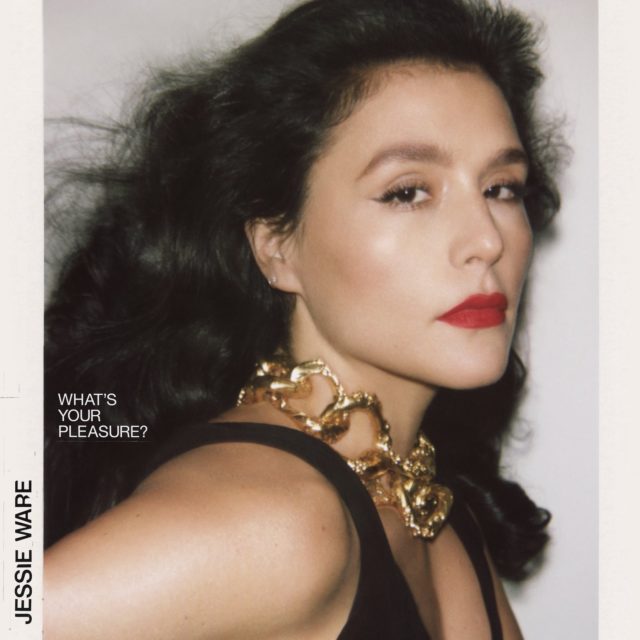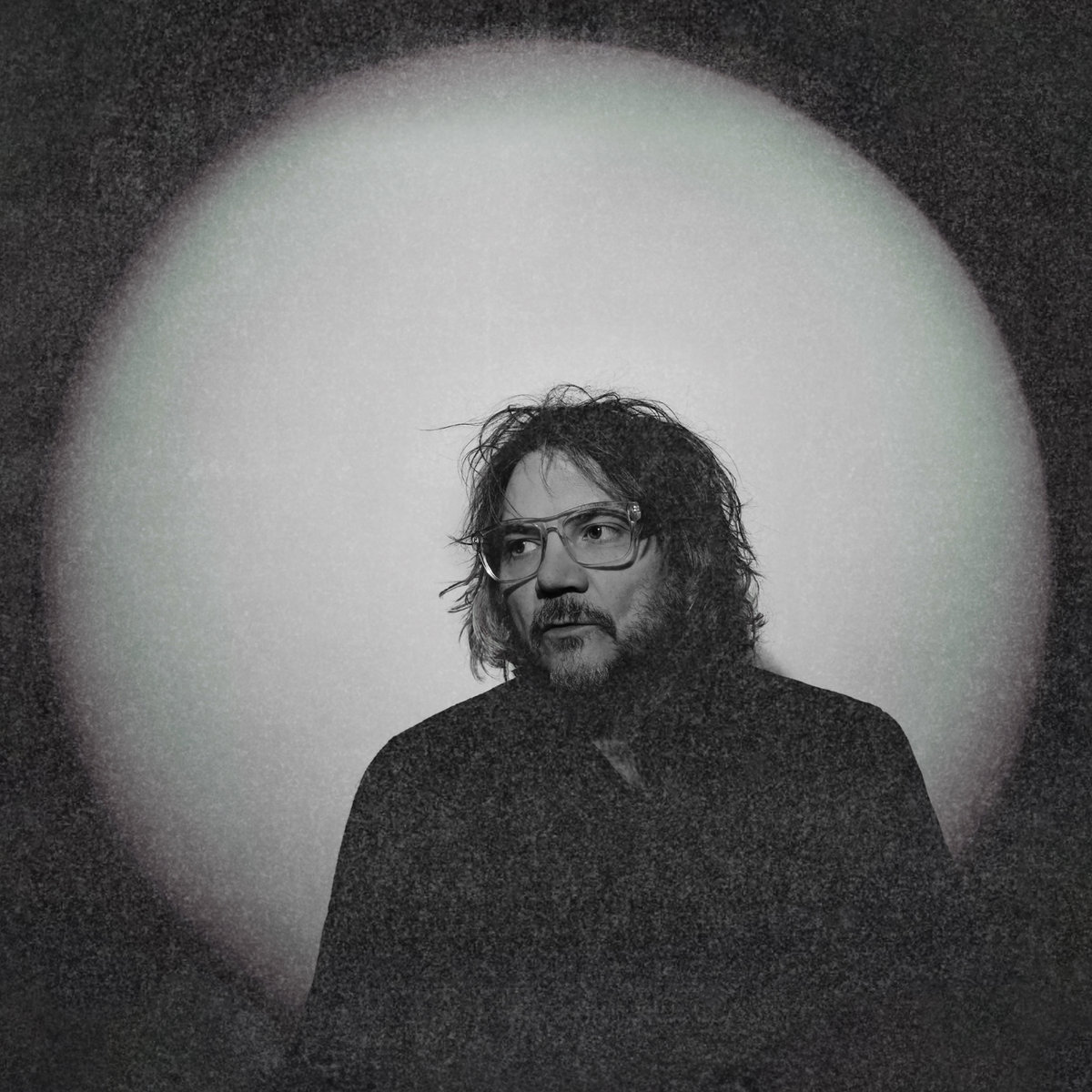Jessie Ware was in need of a rebirth. Her most recent album, 2017's Glasshouse, was a paradox -- her most personal songwriting in the wake of becoming a mother, but stylistically lost to sounds that didn't feel like her own. But beginning with “Adore You” way back in February of 2019 and continuing with a series of singles that would become the rollout for her fourth album, What's Your Pleasure?, it was clear she was revitalized. She had found her voice again, echoing out over the dancefloor.
In recent interviews, the relationship between Glasshouse and What's Your Pleasure? has been sketched out in that classic, almost stereotypical way: the last album let people down, and this one, poised to be her "best yet," directly responds to that by being a departure via a return to form. Glasshouse was just about as critically respected as Ware has always been, but there was some slight cognitive dissonance at play within it. It was her mellowest, most introspective release, but it was also supposedly intended to take her up to a higher echelon in the pop ecosystem. That didn't happen. Glasshouse struggled commercially, and Ware's recently been candid about how it all amplified her already-existent imposter syndrome. The nadir arrived with an under-attended Coachella performance during an already financially difficult tour. Ware mulled over what her future in music would be.
After all that, Ware teamed up with James Ford, who also produced 2014's Tough Love, with a specific mission statement in mind. “I went into the studio to make a record that made people want to dance, flirt, and have sex,” Ware said. That goal was evident -- and often achieved -- across early singles like “Spotlight” and “Mirage (Don't Stop).” Since then, What's Your Pleasure? has garnered comparisons to Ware's earlier days: guest spots on dance tracks and her 2012 debut Devotion. She's acknowledged a connection there, in the sense that there was a newness and innocence to that era of her career, and here she was trying to tap into a truer sense of her self -- to make music without consideration for whatever mechanisms of the pop industry she was once trying to engage with.
When Ware was lending her voice to club bangers by SBTRKT and Disclosure, there was a tendency to regard her like a contemporary iteration of a disco diva. But on her own albums, there were really only a handful of moments that moved with that kind of pulse, while Ware otherwise leaned into her skill with blue-eyed soul torch song balladry. Her albums were sleek, smooth pop with a slight digital sheen loosely related to current dance music -- or at least, a certain corner of it during EDM's burgeoning early '10s heyday -- but they weren't club music. What's Your Pleasure?, then, is instead a return to some kind of idea of Jessie Ware, but a form she's hadn't quite assumed by herself yet. The album is committed to grooves like never before in her career. While there's still a sophisticated swoon to these songs holding them back from becoming too big or bombastic, it's the first time Ware has made an album that is, simply, banger after banger.
This, paired with the trickle of tracks over the last year, could set What's Your Pleasure? up to feel like some kind collection of loosely related singles. And many of its songs do stand alone as bulletproof jams, but there's also a cinematic scope to the whole experience. Opener “Spotlight” starts quiet before quickly bubbling up into its beat, and from there the album rarely lets up. The robo-funk of “Ooh La La,” the spacey-sensual “Adore You,” the gentle but insistent throb of the title track -- these are all variations on a very effective theme. Even when the album seems to calm down -- like in the airy “In Your Eyes,” or “Step Into My Life” before it bursts into well-deployed horn and string accents -- it never really slows. The whole thing conjures bodies in motion, roiling tensions and euphoric releases.
Lyrically, What's Your Pleasure?, fittingly enough, focuses on the topics of love and lust. After writing so directly about her own life on Glasshouse, Ware's taken a more oblique route here. A lot of the images on What's Your Pleasure? are classic pop song evocations of losing yourself in someone new or a night out, from “In the moonlight/ This is our time/ In the spotlight” to the technicolor street lights and cigarettes on the dash of “Ooh La La.” Elsewhere, Ware fully plays into the iconography of a singer pushing people to escape when they most need it, like the chorus of “Mirage (Don't Stop)” repeatedly invoking the command of the song's title.
Most of that functions like Ware exploring a long-ago-established form and tradition, imagining losing herself alongside everyone else, and then, in a sense, finding herself all over again. There are still lyrics across What's Your Pleasure? that, while less concrete, seem rooted in Ware's contented family life. Romance takes different forms across the album, whether it's temporary in the arms of a stranger or whether it's solace in the arms of a partner. In the album's stunning closer “Remember Where You Are,” the escapism of What's Your Pleasure? concludes with a reminder of home. “The heart of the city is on fire/ Sun on the rise, the highs are gonna fall/ But nothing is different in my arms/ So darling, remember, remember where you are,” Ware and a host of backup vocalists sing, in a kind of cosmic soul melody. Ware imagined it as a dystopian scenario -- the song was written around the time Boris Johnson retained power in the UK -- and looked to the anchor of family as the world fell apart outside.
While the last few years were never lacking for apocalyptic imagery or anxieties, Ware couldn't have known quite how strange and tumultuous a time into which she'd be releasing this album. It's a little reminiscent of Lady Gaga's Chromatica, a 2020 album so clearly meant to be played very loud in the sort of communal spaces we still won't be filling for quite a while. But at the same time, it almost feels more appropriate that What's Your Pleasure? has come out in this particular context. Ware intended for the album to convey a certain mood and soundtrack a certain scene; upon announcement, she mused that maybe it was time to lose her melancholic side, and What's Your Pleasure? crackles with joy, is electrified by rediscovery.
Yet at the same time, there's a distinct sense of loneliness across the album. Like Ware's not so much singing about the exact moment of connection between people, but the condition that makes us yearn for that moment. Songs like the immaculate “Save A Kiss” are riddled with longing, imagining that moment where you are where you are supposed to be, with whoever you're supposed to be with. At the same time you can easily hear What's Your Pleasure? as music in waiting for parties in some unseen, less worried future; you can just as easily hear it as music for the end of those nights, for when the hours begin to yield to morning. Maybe “Adore You” and “Save A Kiss” are hazy love overloads, or maybe they are music for the solitary, misty trip home. There's a certain quality to Ware's voice, a wistfulness even when she herself is happier. It makes What's Your Pleasure? almost more of a night walk dance album than a nightclub dance album.
The pangs may partially come from What's Your Pleasure?'s relationship with time. Ware has always been one of those artists who feels somewhat timeless, equally in thrall of old-school tropes and songwriting as she is a part of her own era. She's only ever skirted the contemporary pop trends of her peers. But like yet another 2020 release, Dua Lipa's Future Nostalgia, Ware looks back to a rather specific period -- a late '70s/early '80s segue from disco's peak to the proliferation of all kinds of new dance music evolutions. (The cover of What's Your Pleasure? is also inspired by Andy Warhol polaroids, calling back once more to an era of lost, urbane cool.) You know where all the touchstones are coming from here, but Ware wields them well. Across the board, What's Your Pleasure? simply sounds amazing -- each synth burble, each rhythm, each string or horn arrangement, each sultry melody, everything is calibrated perfectly.
“Future nostalgia” wouldn't be a bad way to describe What's Your Pleasure? as an album, either. In embracing that timeless aspect of her personality, Ware came up with an album that sounds out of time, and somehow more like her than ever. It's not exactly retro, and it's not exactly the sound of 2020; it's not exactly the sound of Ware's early days, and yet it's somehow the sound we always imagined her adopting as her own. Like each time a narrator catches the eyes of someone new in one song or another on What's Your Pleasure?, there is a feeling on the album of everything leading up to this point, everything falling into place. Every time you hear Ware begin singing over this music, it just feels right.
What's Your Pleasure? is out now via PMR Records/Friends Keep Secrets/Interscope. Listen to it here.






